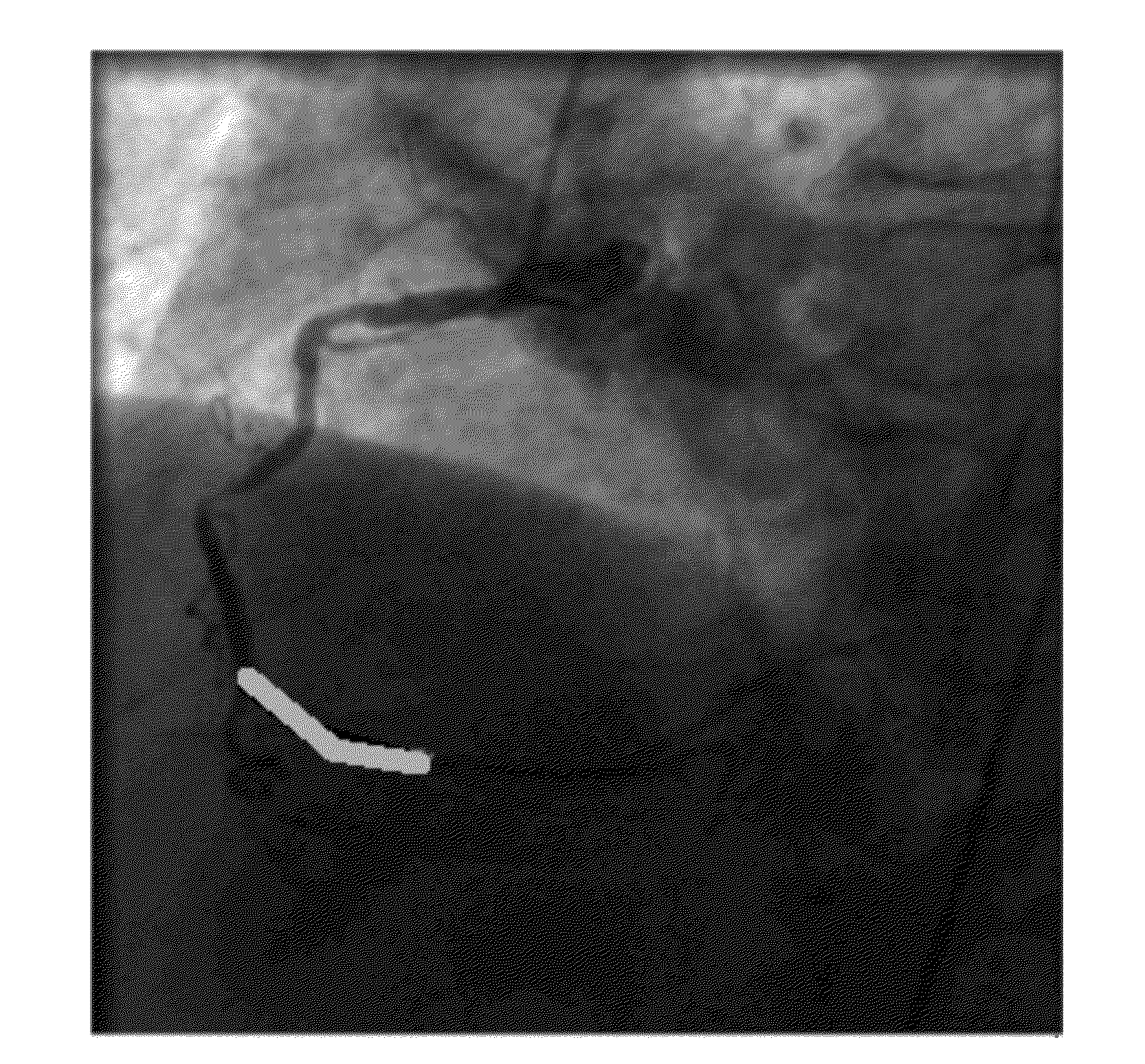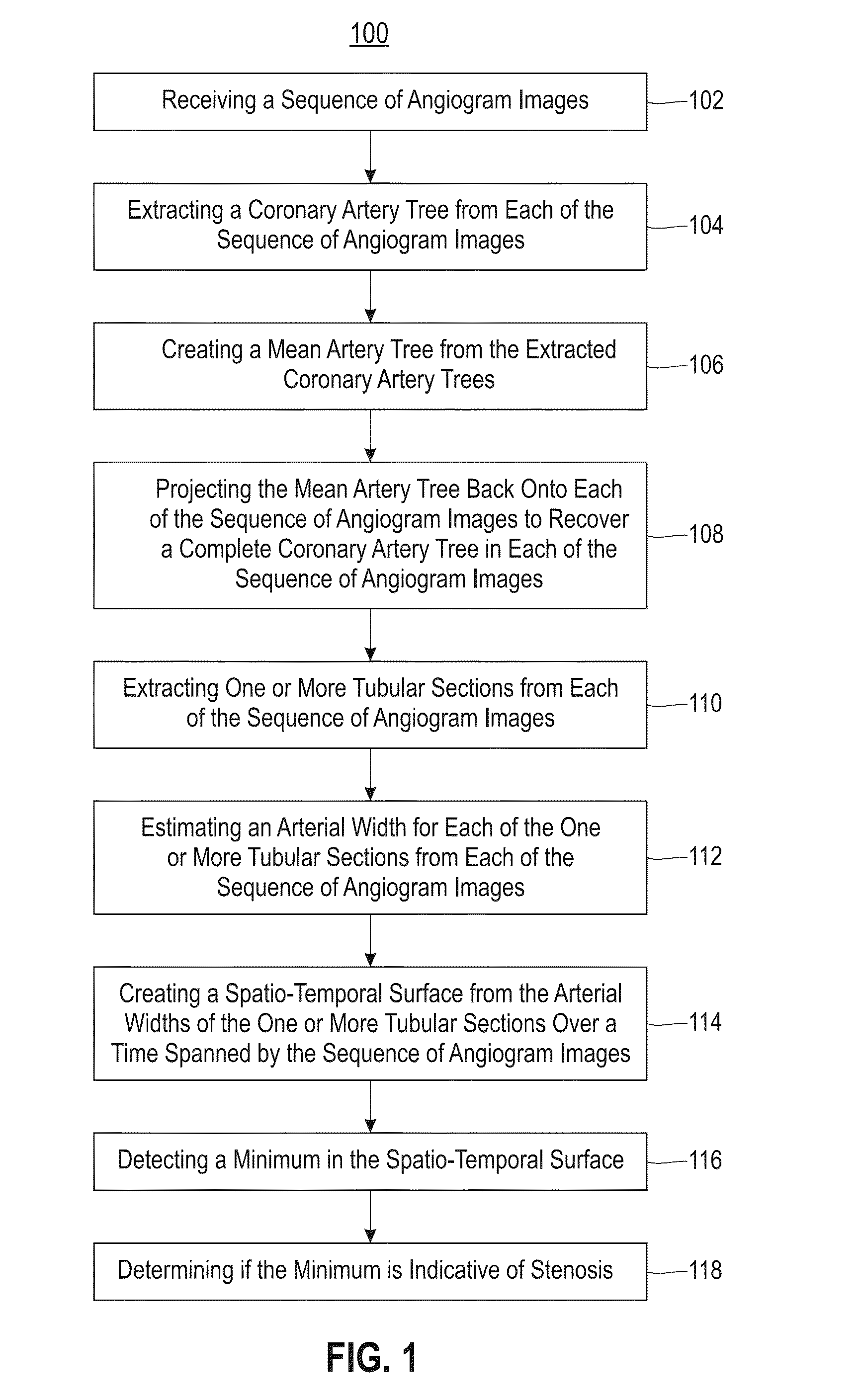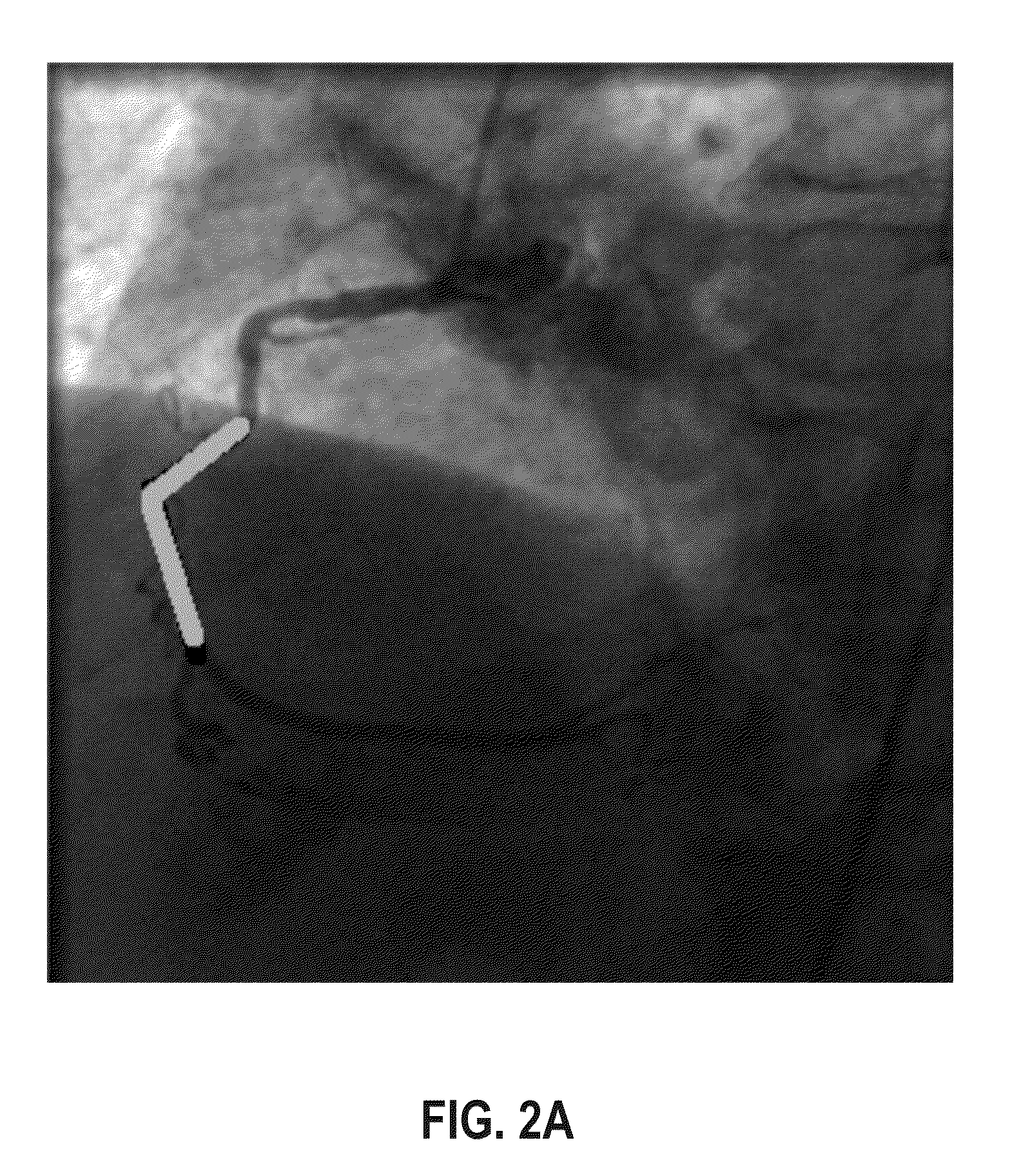Detecting coronary stenosis through spatio-temporal tracking
a spatio-temporal tracking and coronary artery technology, applied in image analysis, medical science, diagnostics, etc., can solve problems such as heart attack, chest symptoms, permanent impairment of heart muscle function,
- Summary
- Abstract
- Description
- Claims
- Application Information
AI Technical Summary
Benefits of technology
Problems solved by technology
Method used
Image
Examples
Embodiment Construction
[0020]Embodiments described herein are directed to methods, systems and computer program products for automatic detection of coronary stenosis in X-ray angiography data. In exemplary embodiments, the spatio-temporal nature of angiography sequences is used to isolate the coronary artery tree. An arterial width surface is formed for each isolated artery segment by calculating the width along a segment and tracking the segment in each image frame over time. A persistent minima of this surface, which corresponds to a stenosis in the artery, is then identified.
[0021]Referring now to FIG. 1, a process flow of a method 100 for detecting coronary stenosis through spatio-temporal tracking in accordance with an embodiment is illustrated. As illustrated at block 102, the method 100 includes receiving a sequence of angiogram images. In exemplary embodiments, the sequence of angiogram images are X-ray angiogram images. Next, as shown at block 104, the method 100 includes extracting a coronary ar...
PUM
 Login to View More
Login to View More Abstract
Description
Claims
Application Information
 Login to View More
Login to View More - R&D
- Intellectual Property
- Life Sciences
- Materials
- Tech Scout
- Unparalleled Data Quality
- Higher Quality Content
- 60% Fewer Hallucinations
Browse by: Latest US Patents, China's latest patents, Technical Efficacy Thesaurus, Application Domain, Technology Topic, Popular Technical Reports.
© 2025 PatSnap. All rights reserved.Legal|Privacy policy|Modern Slavery Act Transparency Statement|Sitemap|About US| Contact US: help@patsnap.com



